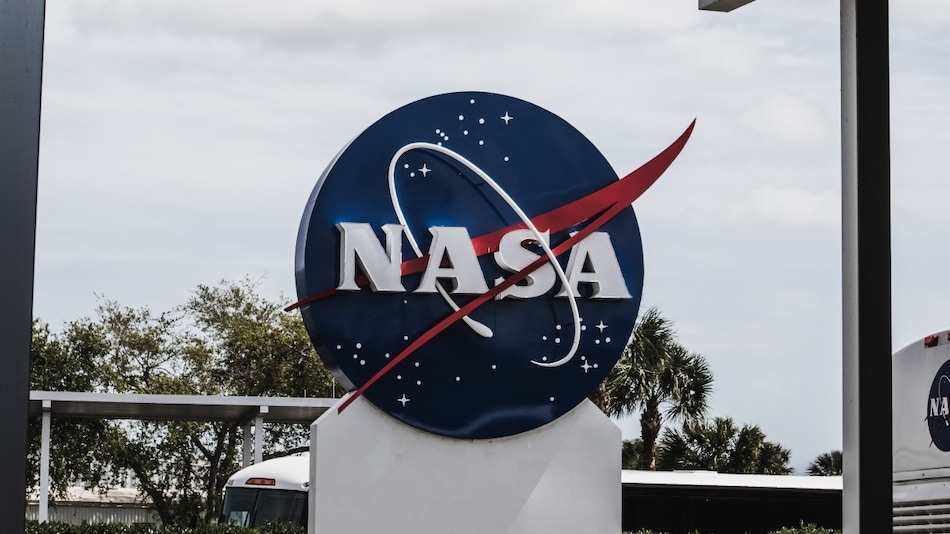- Home
- Science
- Science News
- NASA, SpaceX to Explore Methods to Boost Hubble Telescope Orbit to Extend Lifespan
NASA, SpaceX to Explore Methods to Boost Hubble Telescope Orbit to Extend Lifespan
NASA's Hubble has been operating about 540 kilometres above Earth since 1990, in an orbit that slowly decays over time.

A few months ago, SpaceX approached NASA with the idea for a study
NASA and SpaceX have agreed to study the feasibility of awarding Elon Musk's company a contract to boost the Hubble Space Telescope to a higher orbit, with a goal of extending its lifespan, the US space agency said Thursday.
The renowned observatory has been operating since 1990 about 335 miles (540 kilometers) above Earth, in an orbit that slowly decays over time.
Hubble has no on-board propulsion to counter the small but still present atmospheric drag in this region of space, and its altitude has previously been restored during Space Shuttle missions.
The proposed new effort would involve a SpaceX Dragon capsule.
"A few months ago, SpaceX approached NASA with the idea for a study whether a commercial crew could help reboost our Hubble spacecraft," NASA's chief scientist Thomas Zurbuchen told reporters, adding the agency had agreed to the study at no cost to itself.
He stressed there are no concrete plans at present to conduct or fund such a mission until the technical challenges are better understood.
One of the main obstacles would be that the Dragon spacecraft, unlike the Space Shuttles, does not have a robotic arm and would need modifications for such a mission.
SpaceX proposed the idea in partnership with the Polaris programme, a private human spaceflight venture led by payments billionaire Jared Isaacman, who last year chartered a SpaceX Crew Dragon to orbit the Earth with three other private astronauts.
"This would certainly fit within the parameters we established for the Polaris programme," Isaacman said in response to a question about whether reboosting Hubble could be the goal for a future Polaris mission.
Asked by a reporter whether there might be a perception that the mission was contrived in order to give wealthy people tasks to do in space, Zurbuchen said: "I think it's only appropriate for us to look at this because of the tremendous value this research asset has for us."
Arguably among the most valuable instruments in scientific history, Hubble continues to make important discoveries, including this year detecting the farthest individual star ever seen -- Earendel, whose light took 12.9 billion years to reach us.
It is currently forecast to remain operational throughout this decade, with a 50 percent chance of de-orbiting in 2037, said Patrick Crouse, Hubble Space Telescope project manager.
Get your daily dose of tech news, reviews, and insights, in under 80 characters on Gadgets 360 Turbo. Connect with fellow tech lovers on our Forum. Follow us on X, Facebook, WhatsApp, Threads and Google News for instant updates. Catch all the action on our YouTube channel.
Related Stories
- Samsung Galaxy Unpacked 2026
- iPhone 17 Pro Max
- ChatGPT
- iOS 26
- Laptop Under 50000
- Smartwatch Under 10000
- Apple Vision Pro
- Oneplus 12
- OnePlus Nord CE 3 Lite 5G
- iPhone 13
- Xiaomi 14 Pro
- Oppo Find N3
- Tecno Spark Go (2023)
- Realme V30
- Best Phones Under 25000
- Samsung Galaxy S24 Series
- Cryptocurrency
- iQoo 12
- Samsung Galaxy S24 Ultra
- Giottus
- Samsung Galaxy Z Flip 5
- Apple 'Scary Fast'
- Housefull 5
- GoPro Hero 12 Black Review
- Invincible Season 2
- JioGlass
- HD Ready TV
- Latest Mobile Phones
- Compare Phones
- Tecno Pova Curve 2 5G
- Lava Yuva Star 3
- Honor X6d
- OPPO K14x 5G
- Samsung Galaxy F70e 5G
- iQOO 15 Ultra
- OPPO A6v 5G
- OPPO A6i+ 5G
- Asus Vivobook 16 (M1605NAQ)
- Asus Vivobook 15 (2026)
- Brave Ark 2-in-1
- Black Shark Gaming Tablet
- boAt Chrome Iris
- HMD Watch P1
- Haier H5E Series
- Acerpure Nitro Z Series 100-inch QLED TV
- Asus ROG Ally
- Nintendo Switch Lite
- Haier 1.6 Ton 5 Star Inverter Split AC (HSU19G-MZAID5BN-INV)
- Haier 1.6 Ton 5 Star Inverter Split AC (HSU19G-MZAIM5BN-INV)







![[Partner Content] OPPO Reno15 Series: AI Portrait Camera, Popout and First Compact Reno](https://www.gadgets360.com/static/mobile/images/spacer.png)









